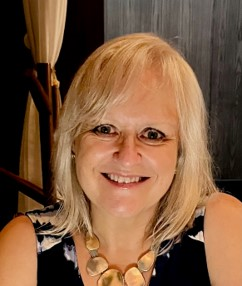By Dr. Tina Nicholson
I was fortunate to join the very first CanREACH course as a delegate in 2014. The course was advertised as a Mini Fellowship in Pediatric Psychopharmacology. I was looking to fill a significant personal knowledge gap around recognising, diagnosing and managing child and adolescent mental health and behavioural conditions in community practice (especially ADHD) – something that most of us have little exposure to during our training, but are increasingly called upon to manage.
I think it is fair to say that this course has impacted my whole practice and has led to an increased area of focused interest for myself and other alumni.
Starting Your Own Journey With CanREACH
The initial weekend course not only has rich content but is presented using evidence-based knowledge of adult learning and practice change. Having been a part of the teaching faculty since 2014, I can attest to the passionate commitment of my teaching colleagues, who include child and adolescent psychiatrists and pediatricians as well as family physicians and a clinical psychologist. Using this combination of expertise allows a pragmatic peer- to- peer, multi-disciplinary approach in translating new knowledge into daily practice. For the subsequent six months, the groups meet biweekly to share ideas around cases and embed the CanREACH Principles in developing a robust approach to all child and adolescent mental health presentations.
Collaborative Life-Long Learning
Despite helping to deliver this course over 20 times in the past decade, I always learn new and updated evidence as well as tips and resources to support this vulnerable patient population and their families. My awareness of the value of detecting mental health problems early on and ensuring a wrap-around approach to support the whole family, has led me to become more involved with advocacy in my hometown. Through connections with our PCN, local mental health services, schools, and community support agencies, we have developed collaborative tables with multiple stakeholders involved with our child and youth population to help break down barriers in communication and supporting navigation of available services for families at times of distress.
Helping a struggling child and his/her/their family by not only diagnosing neurodevelopmental and mental health conditions but also developing a shared understanding for their goals of treatment, and providing ongoing support is one of the most rewarding pieces of my practice. Most of all, watching previously struggling children and adolescents gain confidence in their own abilities and playing a small part in their journey towards successfully launching into adulthood brings joy to my day – and I have the CanREACH family to thank for that.
Get Trained on Pediatric Mental Health with CanREACH Conference
Participate in CanREACH, a CME dedicated to training provincial primary care providers, like yourself, in evidence-based child mental health assessment and treatment. Happening this May 24-25, 2024, the conference is typically offered twice yearly and delivered virtually to provide attendees more confidence in managing this area of medicine.
“I now have the skill and ability to diagnose and treat my kids in their Medical Home,” notes a past participant of CanREACH.
Space is limited and sessions fill quickly. Register online today.

